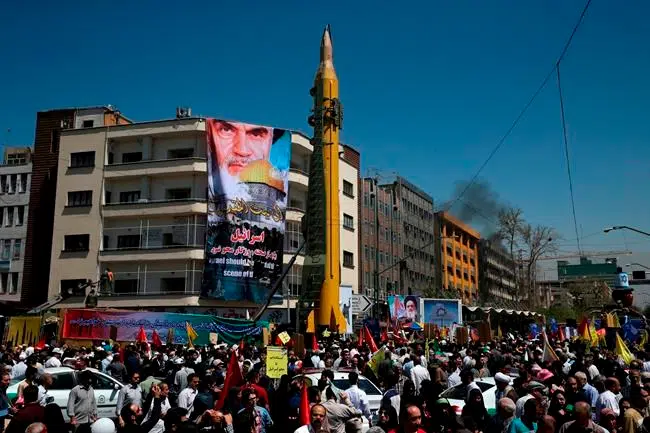
AP Analysis: Iran has few options to avenge Syria strikes
DUBAI, United Arab Emirates — After a second suspected Israeli strike killing Iranian forces in Syria, the Islamic Republic has few ways to retaliate as its leaders wrestle with both unrest at home and the prospect of its nuclear deal collapsing abroad.
Though it has long made threats about Israel’s existence, Iran doesn’t have a modern air force to take on Israel. Launching ballistic missiles also remains a question mark, considering Israel’s anti-missile defence system, the near-certainty of massive Israeli retaliation and the risk of further alienating the West as President Donald Trump threatens to withdraw the United States from the atomic accord.
Meanwhile, Iran’s long-favoured strategy of relying on allied militant groups and proxies faces limits as well. Hezbollah, now bloodied and battered from Syria’s long war, may not have the appetite for another conflict as the Shiite militant group tries to further integrate into local Lebanese politics.
Here’s a look at what happened and the challenges confronting Iran as it weighs its response.
